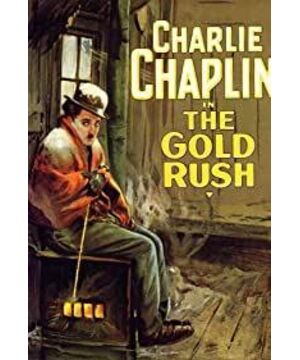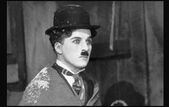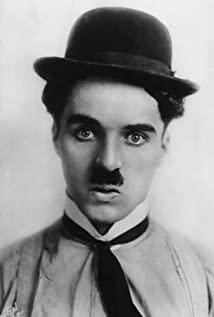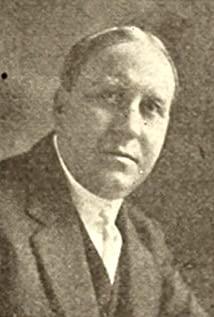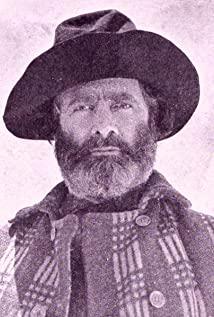It is known that Chaplin was born in stage play, and clowns are the best. If you relate it, you can be sure that the structure and actions of this movie are still very dramatic. The ice hut, the small town dance hall, the good-hearted wooden house, the small town dance hall, the good-hearted wooden house, the ice log hut, and the ship are just a few scenes in total, so the whole movie is a multi-act drama. In each scene, it is a static closed space, just like a drama; the only passages on the street and in the wild actually happen in front of the ballroom, in front of the store, and in front of the well-wish wooden house, that is to say, there is no movement. Of the lens. At the same time, it is easy to find that, except for the slightly complex public building of the small town dance hall, which has a 360-degree panoramic view of the interior, the two wooden houses are only half-sided: the characters face us, and we only see half of the room—— The setting on the stage is exactly like this. In terms of action, plot-turning actions are often only one-off, and bad guys drive Charlotte, bad guys and big guys seize the gun, Charlotte pretends to be frozen, the more he shakes him, the more stiff he pretends, and the big guy is hungry and hallucinates chasing Xia. Luo...In the end, the snowy log house stilted on the cliff repeatedly, and the big man and Charlotte were tossing in it—all repeated and exaggerated movements. It is these rounds that constitute the jokes of traditional comedy.
But don't think that Chaplin just recorded his comedy into a movie. Take an example: Charlotte, the villain, the big guy, and Charlotte are trapped in the wooden house, and their eyes are sinking so hungry; the big guy proposes a lottery, and whoever touches the playing card points out to find food, and then touches it. There was a K; Charlotte reached out his hand and saw that it was a 3. He was furious, threw the card, turned around and carried it back. He didn't expect the bad guy to draw a 2 right away. He saw it and was overjoyed. He didn't have any thoughts anymore. But from this 3 to the 2, even if he saw the big joy, a total of 10 seconds, slow down the camera, it is actually like this: throw the card, turn around, turn your back to us, step to the bed-we think he I was about to fall on the bed. I didn’t expect to see him stretch out his hand—reaching for the hat hanging on the wall, then brushing his cuffs and adjusting his collar—this is the rhythm of going out.
This small detail is enough to move people. It fully shows that this little person is aware of responsibility at any time, whether he wants it or not, luck or bad luck. His anger disappeared in just a few seconds, but it wasn't that he dared not stop,-he was still full of sleeves. The wonderful heart in these few seconds cannot be seen in the drama: as long as there is no sound and no lines, it can only be hidden. But in the movie, Chaplin has already realized that the action of the movie can be overwhelming.
Although the setting in the film is simple (or basic), it is no different from the stage props; but compared with most dramas where the plot only takes place on one plane, the spatial relationship in the film can be played to a greater extent. Here is just one example: the stairs of the small town dance hall, and the deck ladder on the ship, the most classic of Chaplin's scene scheduling.
The small town ballroom is a one and a half-high space: the ballroom is on the ground, and the stairs to the mezzanine are the cafes for rest. Georgia comes up to rest when tired. In order to make her handsome, Charlotte, the one she picked the most, danced with her. After that, it was half to relieve her hatred and half to tease him. She dropped the top of her head and the flower that Charlotte picked up and gave it to Charlotte. The floor rested, and in the meantime, he refused another relentless molesting by Shuabi. Since then, the two confrontations between Charlotte and Jack have been around this staircase. To be more specific: it all happened in front of this stairwell. The first time it was Charlotte holding a chicken feather in his hand as an arrow, guarding at the top of the stairs to block for Georgia, and fighting with the entangled Shuaibi at the top of the stairs; the second time it was Georgia that failed the feast that Charlotte had prepared and left a message. The waiter saw Charlotte give him: She was waiting for him on the second floor, Charlotte was looking for her in the ballroom, and she didn’t know where she was. . In the end, Charlotte saw her, but it wasn't the stairs she was walking up—from start to finish, we didn't know what was in the stairwell. Obviously, the stairs showed that Georgia was always above it until this time, and the conventional way was not open to him.
But when he got on the ship, it happened to be a flip: Charlotte slipped off the deck ladder and fell onto the deck, only to be accidentally discovered by Georgia, who had rolled up the bedding and returned to his hometown. At this time, the identities of the two were already very different. Not surprisingly, in the last scene, he, she, the footman, reporter, and flight attendant all happened around this ladder. This ladder is his wealth. In the last circle, the two people walked up the ladder holding hands. The happy ending reminded me of the last train drilling tunnel in "North by Northwest". Of course, the shot of Xi Pang is much more explicit: but if you want Charlie to do it, it's the same.
This movie is a bit old today, but it's worth it. Especially although the beard and eyelashes are clowns, the eyes can't hide. Especially the one from 51:27-34, hit the softest corner in my heart.
Thanks Charlie.
View more about The Gold Rush reviews


